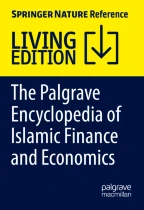Monetary Policy

Central banks rely heavily on monetary policy to accomplish macroeconomic goals. This entry investigates the traditional framework of monetary policy, with a particular focus on key instruments such as required reserves, open market operations, and rediscount rates. Moreover, it explores the difficulties and repercussions associated with excessively stringent or expansionary monetary policies, such as recession and inflation. The entry, which then shifts its focus to Islamic monetary theory, discerns common goals with conventional policies while emphasizing unique principles derived from Islamic law, which forbid interest and speculative transactions. By analyzing explicit Quran and hadiths, this entry delineates the core objectives of Islamic monetary policy, which encompass the preservation of price stability, the prevention of speculative tendencies, and the promotion of equitable income distribution. In lieu of interest-based instruments, Islamic economists suggest alternative mechanisms, including profit-sharing rates, ijara sukuk, and central bank capital allocation. In essence, this entry explains the literature regarding the efficacy and compatibility of conventional and Islamic monetary policies in fostering economic prosperity and stability.
This is a preview of subscription content, log in via an institution to check access.
Access this chapter
References
- Ahmad Z, Iqbal M, Khan F (1983) Money and banking in Islam. J Res Islamic Econ:93–99 Google Scholar
- Chapra M (2019) Umer. Adil Bir Para Sistemine Doğru. Çev. Ömer Faruk Tekdoğan. İktisat Yayınları, İstanbul Google Scholar
- Dieye A (2020) An Islamic model for stabilization and growth. Palgrave Macmillan, Cham BookGoogle Scholar
- Khan MF, Jabeen Z (2021) Monetary economics and monetary policy in Islamic perspective: focus on contemporary Muslim economies aiming at making their economies Islamic. In: Eğri T, Orhan ZH (eds) Islamic monetary economics finance and banking in contemporary Muslim economies. Routledge, New York, pp 32–59 Google Scholar
- Tabakoğlu A (2005) Toplu Makaleler II İslam İktisadı. Kitabevi, İstanbul Google Scholar
- Watkins JS (2020) Islamic finance and global capitalism an alternative to the market economy. Palgrave Macmillan, Cham BookGoogle Scholar
- Yıldırım K, Karaman D, Taşdemir M (2014) Makro Ekonomi (12 Baskı). Seçkin Yayıncılık, Ankara Google Scholar
- Zaher S (2021) Monetary policy and Islamic banking: key challenges. In: Eğri T, Orhan ZH (eds) Islamic monetary economics finance and banking in contemporary Muslim economies. Routledge, New York, pp 154–168 Google Scholar
- Zulkhibri M, Manap TAA (2019) Introduction. In: Zulkhibri M, Manap TAA, Muneeza A (eds) Islamic monetary economics and institutions theory and practice. Springer, Cham ChapterGoogle Scholar
Author information
Authors and Affiliations
- Mardin Artuklu University, Mardin, Turkey Ömer Fazıl Emek
- Ömer Fazıl Emek
You can also search for this author in PubMed Google Scholar
Editor information
- Istanbul Institute for Advanced Studies, Istanbul University, Fatih, Istanbul, Türkiye Murat Ustaoğlu
- Anadolu University, Odunpazarı, Türkiye Cenap Çakmak
Section Editor information
- Faculty of Economics, Istanbul University, Istanbul, Turkey Muhammet Sait Bozik
- Istanbul Institute for Advanced Studies, Istanbul, Türkiye Muhammet Sait Bozik
- Department of Economics, Istanbul Institute for Advances Studies, Istanbul University, Istanbul, Turkey Büşra Çil
Rights and permissions
Copyright information
© 2024 The Author(s), under exclusive licence to Springer Nature Switzerland AG
About this entry
Emek, Ö.F. (2024). Monetary Policy. In: Ustaoğlu, M., Çakmak, C. (eds) The Palgrave Encyclopedia of Islamic Finance and Economics. Palgrave Macmillan, Cham. https://doi.org/10.1007/978-3-030-93703-4_213-1
Download citation
- DOI : https://doi.org/10.1007/978-3-030-93703-4_213-1
- Received : 23 November 2023
- Accepted : 27 November 2023
- Published : 04 January 2024
- Publisher Name : Palgrave Macmillan, Cham
- Print ISBN : 978-3-030-93703-4
- Online ISBN : 978-3-030-93703-4
- eBook Packages : Springer Reference Economics and Finance Reference Module Humanities and Social Sciences Reference Module Business, Economics and Social Sciences

